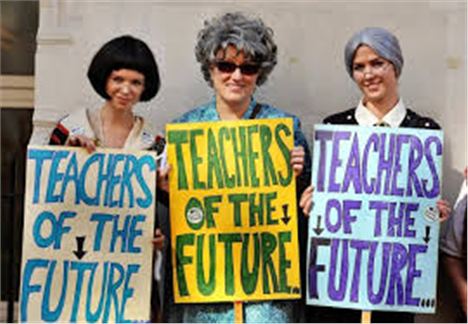ALWAYS at the vanguard of free-thinking radicalism, Manchester and the North West have been chosen as the first place to strike in the next round of action organised by the NUT and the NASUWT who, together, represent 90% of teachers. The decision was taken jointly by the leadership of the two unions as the strength of feeling about proposed changes to pay and conditions amongst teachers in the North West is running particularly high.
Strikes can be awkward, inconvenient and not exactly great for children’s education. But what could be more damaging, is having your children taught by a demoralised workforce.
The North West strike, which is scheduled for 27 June, is a response to changes in teachers’ pay and pensions. Unless agreement is reached with the Education Secretary Michael Gove, further rolling strikes are to follow in the autumn term with a one day national strike before Christmas.
Unions complain that teachers are being asked to work more and more in return for less and less – the retirement age is being raised to 68 in line with other public sector workers yet pensions contributions are rising by an average of just over 3%.
Teachers are also being offered another below-inflation pay rise. For the past eight years, all pay rises have been below the level of inflation and the unions claim that taking into account inflation and extra pension payments, teachers’ pay has dropped by more than 11% since September 2010. A change in the way teachers’ pay rises are being awarded is also being proposed with a move towards performance-related pay.
The government argues that there is simply not enough money in the pot to deal with the spiralling cost of public sector pensions: “The cost to the taxpayer of teacher pensions is already forecast to double from £5 billion in 2006 to £10 billion in 2016 and will carry on rising rapidly as life expectancy continues to rocket.”
Life is difficult for teachers at the moment.
Workload is increasing and a recent YouGov survey showed that more than half of teachers describe their morale as ‘low or very low’. More and more teachers are leaving the profession and at the other end of the scale, fewer graduates are interested in joining it.
However life is difficult for many people at the moment so strike action is not guaranteed to raise sympathy from people who are also having to make cutbacks and see the public sector life as a cushy option.
Stephen Marciniak, General Secretary for the National Union of Teachers’ Manchester office, claims: “Teachers are not simply coming out on strike because they want more pay. It is about the erosion of the terms and conditions teachers have worked under since 1926.”
He admits that strikes can be a nuisance for parents. Although pupils might like the idea of having what is basically a bonus holiday for them, Marciniak insists that the date of the planned strike has been chosen carefully: “By holding the strike on 27 June, we are avoiding disruption during the exam period so children who have worked hard aren’t inconvenienced.”
Should teachers be more like their counterparts in the police service and the medical profession who are less known for their bolshy, placard-waving tendencies?
That said, the police are not legally allowed to strike and doctors, although they too have their issues, also have big enough salaries to allay most militant uprisings. Both doctors and the police enjoy better pension provision than teachers but slating the hard work of our educationalists seems to be de rigueur in the current political climate.
Kat Rowe, a teacher from Oswald Road Primary School in Chorlton says: “In the media, teachers are portrayed as slackers. I get the impression that people think our job is basically babysitting. I don’t think it’s taken seriously as a profession. I get to work at 7.30am and get home at 6pm. I take work home and work weekends.”
Justine Roberts, founder and CEO of Mumsnet explains: "Most Mumsnetters have sympathy for the teachers' plight and understand that teachers don't take the decision to strike lightly. That said it is a bit of a nightmare for parents, particularly those who work and have to make alternative arrangements."












